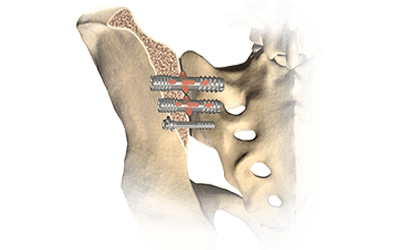The CNIM Test Is The Make Or Break Of IONM
As a young boy, I didn’t dream of passing the CNIM test and watch my career in IOM take off. Like everyone else I’ve met who does neuromonitoring, I kind of just fell into this. But I’m glad I did.
I soon learned that in order to create value for myself in this industry, I had to get some more credentials. Namely the CNIM.
Passing the CNIM test is a major milestone in IOM.
And it’s no walk in the park.
If you’ve read my About Me section, then you know I’m a former OT and chiropractic neurologist. That means I’ve spent years in anatomy, neurology and physiology labs and classes, not to mention time in practice. Plus the fact that I did electrodiagnostic testing in my office, I think I had an almost ideal background for IOM. I’ve also been fortunate enough to work with some really great people who have helped along the way.
Lucky me.
But when I go to IOM meetings or chat online to other people in neuromonitoring, I talk to people from all different backgrounds. Doctors, nurses, surgical technicians, business majors, etc. A lot of people have expressed their disappointment in their company or hospital’s training.
Even so, when I first found out about the pass rate of the CNIM exam, I was shocked at the rate of failure. I didn’t even realize other the success/failure rate of the exam when I took it. Just about everyone I knew passed it the first time.
Here’s an image that I got straight off of ABRET’s site (click the image below if you want to see some more of their “very discouraging” stats)
Ouch!
We’re talking about a 55-60% pass rate. I’ve talked to some people who didn’t pass it, and most seemed to be more than capable of running cases and handling problems as they arise. Something here isn’t right.
And as for people (like me) that tend to poke out their chest and tell you about their very expensive qualifications (like I did above), they don’t seem to fare much better on the CNIM test.
After taking the CNIM test myself, here’s where I felt there was a disconnect:
- The test questions are similar to what you might find in an academic institute. That would be OK, if the people who were taking it came from an academic institute. There are some programs out there, but they are still a very small percentage of people taking the test. The responsibility falls on the private company or hospital to provide this type of schooling, which some either don’t or can’t.
- What you need to learn to set up and run a case on a day-to-day basis isn’t a large enough portion of the test. The minutia dominates… and it should. If you’re monitoring primarily benign surgeries, you can fake your way through your career for a pretty good amount of time. You might only see 2-3 cases per year that can expose the underprepared.
- There isn’t enough quality information to prepare you properly for the exam.
Like Confucius says…
“Success depends upon previous preparation, and without such preparation there is sure to be failure.”
And here’s a tip for all of those who are planning on taking CNIM test. Spend some time in preparation for the material you will be using to prepare for the exam. Make an outline of topics you need to cover. Go narrow and go wide. Use the Merlin method to guarantee success.
Do NOT sleep on this test.
It’s a bear.
It’s expensive.
It’s what’s standing between you, job security and higher pay (think opportunity cost here).
Prepare right or prepare to be discouraged.
Keep Learning
Here are some related guides and posts that you might enjoy next.
How To Have Deep Dive Neuromonitoring Conversations That Pays Off…
How To Have A Neuromonitoring Discussion One of the reasons for starting this website was to make sure I was part of the neuromonitoring conversation. It was a decision I made early in my career... and I'm glad I did. Hearing the different perspectives and experiences...
Intraoperative EMG: Referential or Bipolar?
Recording Electrodes For EMG in the Operating Room: Referential or Bipolar? If your IONM manager walked into the OR in the middle of your case, took a look at your intraoperative EMG traces and started questioning your setup, could you defend yourself? I try to do...
BAER During MVD Surgery: A New Protocol?
BAER (Brainstem Auditory Evoked Potentials) During Microvascular Decompression Surgery You might remember when I was complaining about using ABR in the operating room and how to adjust the click polarity to help obtain a more reliable BAER. But my first gripe, having...
Bye-Bye Neuromonitoring Forum
Goodbye To The Neuromonitoring Forum One area of the website that I thought had the most potential to be an asset for the IONM community was the neuromonitoring forum. But it has been several months now and it is still a complete ghost town. I'm honestly not too...
EMG Nerve Monitoring During Minimally Invasive Fusion of the Sacroiliac Joint
Minimally Invasive Fusion of the Sacroiliac Joint Using EMG Nerve Monitoring EMG nerve monitoring in lumbar surgery makes up a large percentage of cases monitored every year. Using EMG nerve monitoring during SI joint fusions seems to be less utilized, even though the...
Physical Exam Scope Of Practice For The Surgical Neurophysiologist
SNP's Performing A Physical Exam: Who Should Do It And Who Shouldn't... Before any case is monitored, all pertinent patient history, signs, symptoms, physical exam findings and diagnostics should be gathered, documented and relayed to any oversight physician that may...







